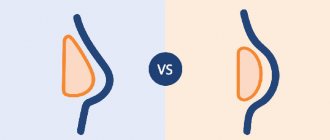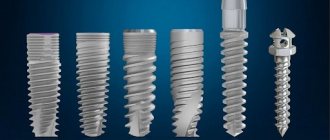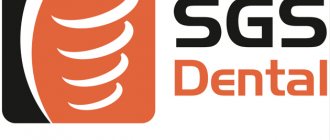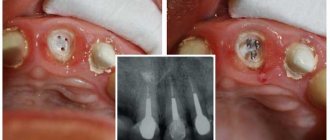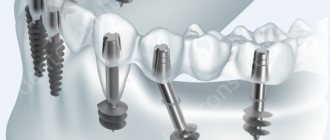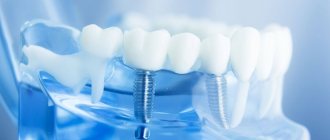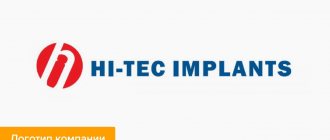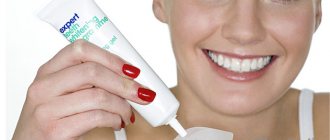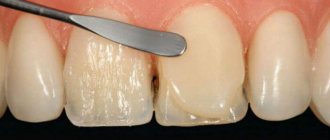Dentists often hear from patients asking them to explain to them which implants are better: Korean or Israeli. The products of manufacturers from these two countries are indeed the most in demand, since with decent quality they are in the average price range. To compare them with each other, consider the characteristics and properties of both.
Features of Israeli implants
Israel began producing artificial root substitutes later than developed European countries, but earlier than Asian ones. The first Israeli implants entered the market in the 80s of the last century. But most brands have a 20-30 year history, although this is also a lot. Today, the most popular systems on the market are Noris Medical, Alpha Bio, AB Dental, MIS, Adin. All of them have sufficient experience in use and good reviews from patients and dentists.
Pros of Israeli implants:
- Variety of models. Manufacturers offer implants for almost all clinical cases.
- Long service life. The lifespan of the roots reaches several decades; some manufacturers give a lifetime guarantee on their product.
- Affordable price. Israeli implants are considered one of the most inexpensive designs on the dental market for similar products.
Another advantage of root substitutes from Israel is that this country annually spends huge amounts of money on research in the field of dental implantology. This is done by higher education institutions, research centers, and research laboratories. Therefore, a considerable number of innovative technologies are used in the production of artificial roots in Israel.
Alpha Bio
Alpha-Bio Tec is the oldest manufacturer, developing and producing implantation systems since 1998. The main advantage of pins of this brand is their universal toolkit for various types of implants, ensuring ease of use in dentistry.
The model range is represented by 6 lines of implants for various clinical cases, which are divided into 2 groups:
- With internal hex connection - models (NeO, SPI, ICE, DFI, ATID) - universal root pins for bone of various densities.
- With a conical hexagonal connection - models (NeO, NICE) - narrower titanium roots that are suitable for installation in conditions of limited space and insufficient thickness of the alveolar ridge.
Advantages:
- Large range of models, ease of use;
- Universal tools;
- Lifetime warranty on all models of titanium pins installed.
Limitations: Alpha Bio does not offer solutions for immediate loading and 1-day jaw implantation protocols (zygomatic and All-on-4).
Features of Korean implants
Korea released its product to the dental implantology market later than Israel. But today this country is considered one of the leaders in the production of budget and mid-price implants. The most popular brands are Osstem, Anyridge, Dentium, Implantium.
Advantages of Korean implants:
- Hypoallergenic material. Most models are made from pure titanium alloy. The impurity content in it does not exceed 1%.
- High survival rates. Osseointegration (fusion of the artificial root with bone tissue) is successful in 98–99% of cases.
- Reduced risk of complications after implantation. Implants made of pure titanium “take root” better.
Some Korean manufacturers offer a special technology for drilling the implant bed, as well as an improved type of coating that accelerates osseointegration.
Noris Medical (Noris Medical)
Noris Medical entered the implant systems market in 2009. Despite their young age, the products of this brand have already become a brand in implantology and prosthetics. Noris Medical implants meet the high quality standards of the EU and the USA, and the product range includes solutions for any clinical case.
- TUFF, TUFF TT, TUFF PRO, ONYX, PteryCore and PteryFit – for classical implantation protocols with immediate and delayed loading for defects in posterior teeth.
- Cortical – artificial roots with a wide basal thread for fixation in the area of the bicortical plate. They are used for narrow alveolar ridges, as well as after tooth extraction in conditions of lack of bone tissue.
- MBI, MBI NC, MONO – designed for simultaneous implantation in the area of central and lateral incisors.
- Zygomatic – zygomatic solutions for the restoration of the upper jaw in conditions of severe bone atrophy.
Noris Medical is the only Israeli implant manufacturer that offers solutions for complete absence of teeth in the upper and lower jaw (All-on-4, All-on-6, Zygomatic implantation). This is one of the few alternatives available on the market to the best Swiss zygomatic implants, Nobel Biocare.
Comparison of Israeli implants
| Criterion | Alpha Bio | Mis | Noris medical |
| Quality and technology | + | ++ | +++ |
| Immediate load | No | Yes | Yes |
| Technology “teeth in 1 day” (All-on-4, All-on-6, Zygomatic) | No | No | Yes |
| Guarantee | Lifetime | Lifetime | Lifetime |
Doctor's review of Israeli implants?
EXPERT OPINION!
In our practice, we have tried various Israeli-made implantation systems - Alpha Bio, Mis, Adin, Noris Medical. Based on our experience and results, we chose Noris Medical products. This system is optimally suited in terms of quality, survival rate, breadth of the model range and allows you to successfully carry out the most complex operations.
Fedorov Roman Nikolaevich
Dentist-implantologist, orthopedist
Clinical experience: 24 years
Which implants are better: Israeli or Swiss?
Swiss implants include primarily Nobel Biocare systems - premium products in the field of modern implantology. Famous Swiss brands also include products from the dental giant Straumann.
These two systems are premium products, occupy the lion's share of the world market and are superior to their Israeli counterparts in all respects.
Israeli or Korean implants: which one to choose
South Korea is one of the leaders in the field of implantology solutions of economy and business class. Common South Korean brands include Osstem, Dentium, AnyOne (AnyRidge), Implantium systems.
In the price segment, South Korean Osstem and Implantium implants are approximately on the same level as their Israeli counterparts; Dentium and AnyOne (AnyRidge) products cost 20-30% more.
Many implantologists agree that Korean dental implants are superior to Israeli ones in quality and technology used. However, it must be taken into account that for the success of implantation, it is not the brand of the implant that matters most, but the professionalism of the doctor and strict adherence to the treatment protocol.
How to choose between root substitutes from two manufacturers?
So, what should you prefer, Korean or Israeli dental implants? Some experts believe that higher quality artificial roots are produced in Korea. But you need to understand that for successful implantation it is important not only to use reliable implants, but also to carry out this operation in a clinic with a good reputation and experienced specialists. Accurate adherence to the treatment protocol and the correct choice of model are also of great importance.
With increased bone density, it is advisable to choose Israeli implants for installation, which have a less aggressive thread and are made in the shape of a cylinder. Korean root substitutes are also less suitable for restoring anterior teeth, due to possible bone atrophy around the implant and further subsidence of the gums.
The choice of country of manufacture and implant model is best done with an experienced dentist. The doctor will suggest the best options based on the specific characteristics of the clinical situation.
Contraindications to implantation
- Diseases of the cardiovascular and nervous systems.
- Incoagulability of blood.
- Diabetes.
- Malignant neoplasms.
- Drinking alcohol, smoking.
- Carious lesions of teeth.
- Weakened immunity.
- Chemo- and radiation therapy.
- Osteoporosis.
Temporary restrictions on implantation of Adin constructs are pregnancy, breastfeeding, viral diseases and infectious inflammation, and periods of exacerbation of chronic pathologies.
Would you like us to call you back?
How are implants different? Comparison of implants
| Implant type | Appearance | Features of use |
| Root-shaped | The shape resembles a natural root. | Can be used for different types of implantation. Installation of such structures is possible only if there is a sufficient amount of bone tissue. |
| Lamellar | They look like a pin with a flat plate attached to the end. | Used when the bone width is insufficient. Installed in the deep layers of bone tissue. This type of operation is traumatic and is therefore rarely used. |
| Combined | Lamellar-root-like system. | This is the best option for serious dental defects (significant edentia, severe bone deficiency). |
| Subperiosteal | They have a complex shape of a metal mesh in the form of a saddle, which is placed on the alveolar ridge. | Designed for very thin jaws. During installation, it is placed close to the jaw bone under the gum. The intervention is traumatic. |
| Endodontic | They are made in the form of a thin screw with a thread for screwing into the bone. | It is implanted through the crown of a natural tooth to strengthen it. |
| Intramucosal | Mushroom-shaped, small sizes | Used for fixing removable orthopedic structures. |
Rating of dental implants by manufacturer and cost
Depending on the prestige of the manufacturer, dental implants are divided into three classes:
- Premium: Nobel Biocare (USA-Switzerland). Elite-level designs have an original design and a special surface texture (TiUnite model). Products of this class meet strict quality standards and have a high cost: 35-85 thousand rubles.
- Medium: Osstem (South Korea). The products of this company are also of good quality, but their price is much lower: up to 35 thousand rubles.
- Budget: Adin system implant (Israel). Products of this brand have good performance characteristics and take root well. The price corresponds to the name of the class - from 6-20 thousand rubles.
What is special about Adin implants?
Thanks to a carefully developed implant system, these structures can be implanted into atrophied tissue with a small bone volume.
Advantages of Adin implants:
- The products have quality marks and certificates that meet all international standards for implant products.
- Implants are made from the highest quality material, which minimizes the risk of rejection.
- OsseoFix coating ensures high rates of engraftment and a complete absence of allergic reactions.
- Thanks to the improved shape and thread, the implant is firmly fixed in the bone tissue.
- Due to the absence of an acidic composition on the threads, the design retains its original shape and structure for a long time.
Adin product varieties:
- Arrow one-Piece: one-piece support structures for crowns.
- Touareg: installed when there is a small amount of bone for implantation in one or two stages.
- Touareg-X: the shape of the implant promotes good adhesion of the mucous membrane to the top of the structure.
- Touareg-S: used for minimally invasive surgeries after preliminary sinus lift.
- Mini Oskar: relevant in orthodontic and orthopedic treatment.
- Swell: ensure uniform distribution of the load on the teeth in case of jaw anomalies.
The manufacturer guarantees the service life of implants from 5-10 years. With systematic oral care, structures can last more than 15 years.
What are Adin implants
The Adin company launched its production in 1972 in Israel. The company's first clients at that time were the USA and the Middle East. The company got involved directly with implants about 30 years ago, and now Adin products can be found in service with almost every implantologist.
The company strives to create high-quality dental products and improve implant installation technologies that can significantly speed up the tissue healing process.
Adin provides doctors not only with high-quality instruments, but also with knowledge in the field of modern implantology. The company's research staff regularly organizes conferences, webinars and advanced training courses.
